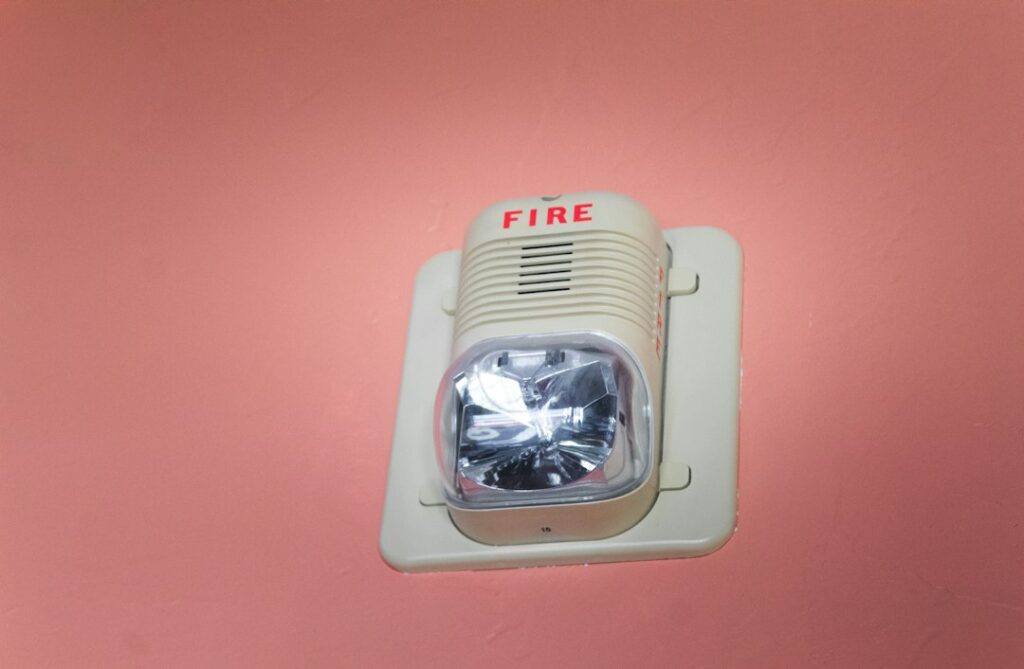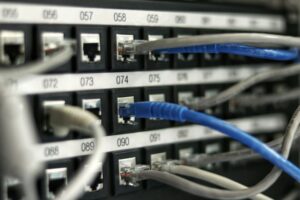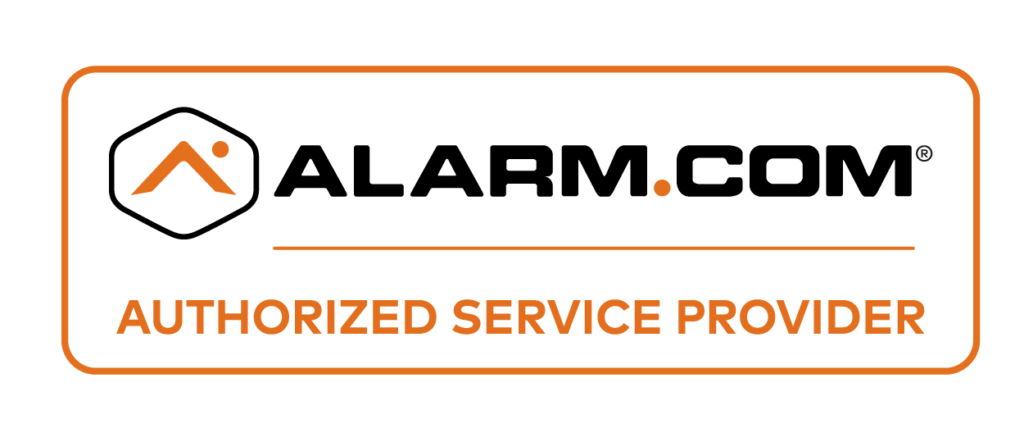Fire safety is a crucial aspect of our daily lives that often goes overlooked until it’s too late. Fires can cause devastating damage to homes, businesses, and lives. It is essential to understand the importance of fire safety and take proactive measures to prevent fires and protect ourselves and our loved ones. In this article, we will explore the various aspects of fire safety, including identifying potential fire hazards, creating emergency plans, installing smoke detectors and fire alarms, maintaining firefighting equipment, educating ourselves and our families on fire safety procedures, developing safe cooking practices, properly storing flammable materials and chemicals, conducting regular fire drills and evacuation procedures, and knowing when to call for professional help in case of a fire.
Key Takeaways
- Fire safety is crucial for both homes and workplaces.
- Identifying potential fire hazards is the first step towards prevention.
- Creating an emergency plan is essential for quick and safe evacuation.
- Smoke detectors and fire alarms are necessary for early detection of fires.
- Regular maintenance of firefighting equipment is crucial for their effectiveness.
Understanding the Importance of Fire Safety
Fires can be incredibly dangerous and destructive. They can spread rapidly and cause extensive damage to property and belongings. More importantly, fires can result in severe injuries or even fatalities. Understanding the dangers of fires is crucial in realizing the importance of fire safety.
Prevention is key when it comes to fire safety. By identifying potential fire hazards and taking steps to address them, we can significantly reduce the risk of fires occurring. It is essential to be aware of common fire hazards in both homes and workplaces, such as faulty electrical wiring, overloaded power outlets, flammable materials, and improper storage of chemicals. By being proactive in addressing these hazards, we can minimize the chances of a fire breaking out.
Having a fire safety plan in place is also vital. This plan should include escape routes, designated meeting points outside the building, and clear instructions on what to do in case of a fire. It is crucial to regularly review and practice this plan with all members of the household or employees in a workplace setting. By being prepared and knowing what to do in an emergency situation, we can increase our chances of safely escaping a fire.
Identifying Potential Fire Hazards in Your Home or Workplace
Identifying potential fire hazards is the first step in preventing fires. In both homes and workplaces, there are common fire hazards that we need to be aware of and address.
In homes, faulty electrical wiring is a significant fire hazard. Overloaded power outlets and extension cords can also pose a risk. It is essential to ensure that electrical systems are up to code and that outlets are not overloaded. Regularly inspecting electrical cords for damage and replacing them if necessary is also crucial.
Flammable materials, such as cleaning products, aerosol cans, and gasoline, should be stored properly in a well-ventilated area away from heat sources. It is important to read and follow the instructions on these products carefully to avoid any accidents.
In workplaces, fire hazards can include improper storage of flammable materials, blocked fire exits, and malfunctioning equipment. It is crucial to have clear guidelines in place for the storage of flammable materials and to regularly inspect fire exits to ensure they are clear and accessible. Equipment should be regularly maintained and serviced to prevent any malfunctions that could lead to a fire.
Creating an Emergency Plan for Your Family or Business
Having an emergency plan in place is essential for both families and businesses. This plan should outline what to do in case of a fire and include escape routes, designated meeting points outside the building, and clear instructions on how to alert authorities.
For families, it is important to involve all members in creating the emergency plan. Each member should know their role and responsibilities in case of a fire. Regularly reviewing and practicing the plan will help ensure that everyone knows what to do in an emergency situation.
Businesses should have an emergency plan that includes designated individuals responsible for evacuating employees, contacting emergency services, and accounting for all personnel. Regular drills should be conducted to familiarize employees with the evacuation procedures and ensure they know how to respond in case of a fire.
Installing Smoke Detectors and Fire Alarms
Smoke detectors and fire alarms are crucial in alerting us to the presence of a fire. They provide early warning, giving us valuable time to escape before the fire spreads.
It is important to install smoke detectors on every level of our homes or workplaces, including inside bedrooms and outside sleeping areas. These detectors should be tested regularly to ensure they are functioning correctly. Batteries should be replaced at least once a year, or when the low battery warning sounds.
Fire alarms should also be installed in homes and workplaces. These alarms are connected to a central monitoring system and automatically alert emergency services in case of a fire. Regular maintenance and testing of fire alarms are essential to ensure they are working properly.
Maintaining Fire Extinguishers and Other Firefighting Equipment
Having firefighting equipment on hand is crucial in case of a fire. Fire extinguishers should be readily accessible and properly maintained.
Fire extinguishers should be inspected regularly to ensure they are in good working condition. The pressure gauge should be checked, and any signs of damage or wear should be addressed immediately. It is also important to know how to use a fire extinguisher correctly. The PASS method (Pull, Aim, Squeeze, Sweep) is a simple technique that can be used to effectively extinguish small fires.
Other firefighting equipment, such as fire blankets and sprinkler systems, should also be regularly inspected and maintained. It is important to familiarize ourselves with these systems and know how to use them in case of a fire.
Educating Yourself and Your Family on Fire Safety Procedures
Education is key when it comes to fire safety. It is important to educate ourselves and our families on fire safety procedures to ensure everyone knows how to respond in case of a fire.
Teaching children about fire safety is crucial. They should be taught not to play with matches or lighters and to alert an adult if they find them. Children should also be taught how to escape in case of a fire and where to meet outside the building.
Regularly reviewing fire safety procedures with the entire family is important. This can be done during family meetings or as part of regular fire drills. It is important to emphasize the importance of staying calm and following the emergency plan in case of a fire.
Developing Safe Cooking Practices in the Kitchen
The kitchen is one of the most common areas where fires start. Developing safe cooking practices is crucial in preventing kitchen fires.
Never leave cooking unattended, especially when using high heat or oil. Keep flammable materials, such as oven mitts and dish towels, away from heat sources. It is also important to keep a close eye on children in the kitchen and teach them about the dangers of hot surfaces and open flames.
Regularly cleaning the stove and oven is important to prevent grease buildup, which can easily catch fire. It is also important to have a fire extinguisher readily available in the kitchen in case of a small grease fire.
Properly Storing Flammable Materials and Chemicals
Flammable materials and chemicals should be stored properly to prevent fires. It is important to read and follow the instructions on these products carefully.
Flammable materials should be stored in well-ventilated areas away from heat sources. They should be kept in their original containers with proper labels. It is important to avoid storing flammable materials near ignition sources, such as electrical outlets or open flames.
Chemicals should also be stored properly, following the manufacturer’s instructions. Some chemicals may require specific storage conditions, such as being kept in a cool, dry place or away from direct sunlight. It is important to keep chemicals out of reach of children and pets.
Conducting Regular Fire Drills and Evacuation Procedures
Regular fire drills are essential in ensuring that everyone knows how to respond in case of a fire. These drills should be conducted both at home and in the workplace.
During fire drills, it is important to practice the emergency plan and evacuation procedures. This includes knowing the escape routes, designated meeting points outside the building, and how to alert authorities. It is important to time the drills to ensure that everyone can evacuate the building safely within a reasonable amount of time.
After each fire drill, it is important to review and discuss any areas that need improvement. This feedback can help identify any weaknesses in the emergency plan and make necessary adjustments.
Knowing When to Call for Professional Help in Case of a Fire
Knowing when to call for professional help is crucial in case of a fire emergency. It is important to have a clear understanding of when it is safe to attempt to extinguish a fire and when it is necessary to evacuate and call for help.
In general, if a fire is small and contained, it may be possible to extinguish it using a fire extinguisher. However, if the fire is spreading rapidly or if there is heavy smoke or intense heat, it is important to evacuate immediately and call emergency services.
It is also important to remember that our safety should always be the top priority. If attempting to extinguish a fire puts us at risk, it is better to evacuate and wait for professional help.
Fire safety is an essential aspect of our daily lives that should not be overlooked. By understanding the importance of fire safety and taking proactive measures, we can significantly reduce the risk of fires occurring and protect ourselves and our loved ones. Identifying potential fire hazards, creating emergency plans, installing smoke detectors and fire alarms, maintaining firefighting equipment, educating ourselves and our families on fire safety procedures, developing safe cooking practices, properly storing flammable materials and chemicals, conducting regular fire drills, and knowing when to call for professional help are all crucial steps in ensuring fire safety. By following these tips and being prepared, we can minimize the risk of fires and keep ourselves and our loved ones safe.
FAQs
What are some common causes of fires?
Some common causes of fires include cooking accidents, electrical malfunctions, smoking, heating equipment, and candles.
How can I prevent fires in my home?
To prevent fires in your home, make sure to keep flammable materials away from heat sources, never leave cooking food unattended, regularly clean your dryer lint trap, and avoid smoking indoors.
What should I do if a fire breaks out in my home?
If a fire breaks out in your home, evacuate immediately and call 911. Do not try to put out the fire yourself unless you have been trained to do so and have the proper equipment.
How can I prepare for a fire emergency?
To prepare for a fire emergency, make sure your smoke detectors are working properly, create a fire escape plan with your family, and practice the plan regularly. Keep a fire extinguisher in your home and know how to use it.
What should I do if I am trapped in a burning building?
If you are trapped in a burning building, try to stay low to the ground to avoid smoke inhalation. If possible, cover your mouth and nose with a cloth. Call 911 and try to signal for help from a window or balcony.










